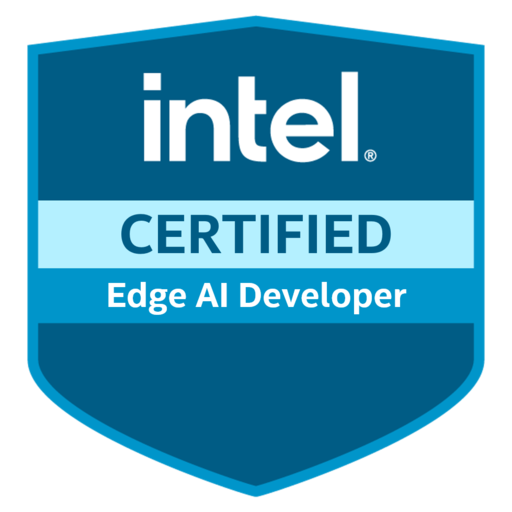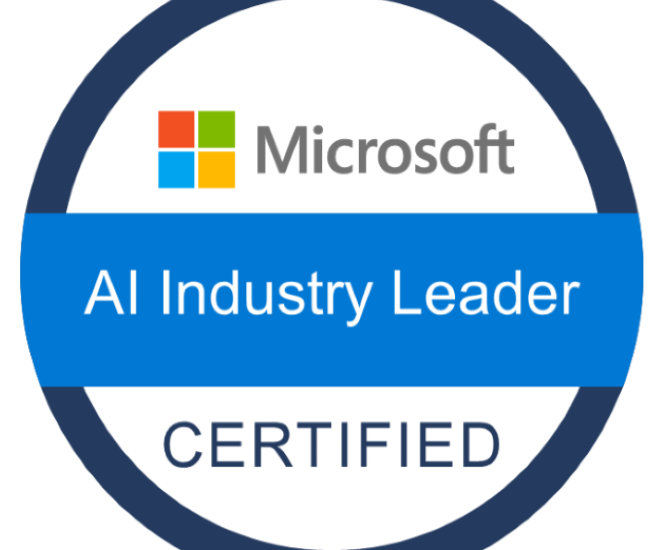In today’s fast-paced healthcare environment, the need for efficient documentation processes has never been greater. The best AI medical scribes are revolutionizing the way healthcare professionals manage patient interactions, allowing them to focus more on patient care and less on paperwork. These advanced software solutions harness the power of artificial intelligence to automate documentation, presenting both remarkable benefits and certain challenges, such as data security and the need for ongoing training.
Toc
This comprehensive guide will explore the best AI medical scribe solutions available in the market, empowering healthcare professionals to make informed decisions that enhance their workflow and improve patient care. We will delve into the benefits of using AI medical scribes, key features to consider when choosing a solution, and provide a detailed comparison of top AI scribe providers.
Introduction to AI Medical Scribes

Artificial Intelligence (AI) medical scribes are advanced software solutions designed to assist healthcare professionals in documenting patient encounters. These scribes use natural language processing and machine learning algorithms to transcribe conversations between healthcare providers and patients, automatically generating comprehensive clinical notes in real-time.
What are AI Medical Scribes?
AI medical scribes significantly streamline the documentation process, enabling clinicians to devote more time to direct patient care. By capturing and organizing detailed patient information, these scribes help improve the accuracy and efficiency of record-keeping. Additionally, they can reduce the risk of burnout among healthcare providers by alleviating some of the administrative burden associated with traditional documentation methods. The adaptability of AI medical scribes facilitates their integration into various medical specialties, ensuring that the specific needs and workflow of each healthcare setting are met. As these technologies continue to evolve, they promise to enhance the overall quality of healthcare delivery.
Benefits of Using AI Medical Scribes
The benefits of using AI medical scribes are numerous, primarily focused on improving efficiency and supporting better patient care. These include:
- Time-saving: With the automation of documentation, healthcare providers can save significant amounts of time that would otherwise be spent on data entry and paperwork. This allows them to devote more time to direct patient care and other critical tasks.
- Improved accuracy: By leveraging natural language processing technology, AI medical scribes can quickly and accurately transcribe conversations between patients and providers into clinical notes. This reduces the risk of human error in record-keeping.
- Enhanced workflow: The integration of AI medical scribes into existing electronic health records (EHR) systems allows for a seamless and efficient workflow. This enables healthcare providers to quickly access patient information and make informed decisions.
- Increased focus on patients: By handling the documentation process, AI medical scribes allow healthcare providers to focus more on building relationships with their patients and providing personalized care. This can lead to improved patient satisfaction and better health outcomes.
Challenges and Considerations for AI Medical Scribes

While AI medical scribes offer numerous advantages, it’s important to consider potential challenges and limitations before implementing these solutions.
Time Efficiency
One of the prominent challenges related to AI medical scribes is ensuring time efficiency without compromising the quality of documentation. While these systems are designed to expedite the documentation process, integrating them with existing medical practices and electronic health records (EHR) can sometimes require significant time and effort upfront. Initial setup, customization, and training of staff to accurately use AI scribes are essential steps that can pose temporary disruptions to clinical workflows. Additionally, continuous updates and maintenance are needed to keep the systems functioning optimally and adapting to any changes in medical terminology or procedures. Balancing these factors is crucial for achieving the long-term goal of improved efficiency and accuracy in medical documentation.
Data Security
Another aspect to consider when using AI medical scribes is the security of patient data. With sensitive and personal information being recorded and stored within these systems, it’s essential to ensure that all necessary measures are taken to protect against potential data breaches or cyber attacks. This includes proper encryption protocols, access controls, and regular system audits.
Ongoing Training
As with any technology, ongoing training is crucial for healthcare providers to use AI medical scribes effectively. As the software evolves and adapts over time, staff must receive adequate training on new features and updates to maximize its benefits fully. Additionally, continuous education and training on best practices for maintaining the accuracy and security of documentation are vital.
Ethical Considerations
The use of AI medical scribes also raises important ethical considerations that must be addressed. One major concern is the potential for bias in the algorithms used for natural language processing. These biases can stem from the data sets on which the AI was trained, potentially leading to unequal or inaccurate representations of patient interactions. To mitigate this risk, ongoing evaluation and refinement of AI algorithms are necessary to ensure fair and unbiased documentation.
Another ethical issue is the transparency of AI scribes in patient encounters. Patients should be informed when AI technology is used in their care processes, and they should have the opportunity to express any concerns. Ensuring that patients are aware of how their information is being recorded and used is crucial for maintaining trust between healthcare providers and patients.
Cost Implications
Finally, the cost implications of implementing AI medical scribe solutions must be carefully considered. While these technologies have the potential to deliver long-term cost savings by improving efficiency and reducing errors, the initial investments in hardware, software, training, and system integration can be substantial. Healthcare organizations need to conduct thorough cost-benefit analyses to guarantee that the investment in AI medical scribes aligns with their financial capabilities and strategic goals. Additionally, exploring potential funding opportunities or partnerships could alleviate the financial burden associated with adopting such technologies.
Key Features to Consider When Choosing an AI Medical Scribe Solution

When considering an AI medical scribe solution, it’s essential to assess the features and capabilities of different systems to find the best fit for your organization. Some key considerations include:
Accuracy
When selecting the best AI medical scribe, accuracy is paramount. Look for solutions that boast high accuracy rates and can effectively handle various accents, dialects, and medical terminology. This attention to detail is essential for ensuring patient safety, compliance, and high-quality care. A scribe that can accurately interpret and transcribe complex medical discussions will significantly reduce the risk of errors in patient records.
Integration
Seamless integration with existing electronic health record (EHR) systems is crucial for streamlining workflow. Opt for an AI scribe that can effortlessly sync with your preferred EHR, minimizing disruptions and enhancing the efficiency of the documentation process. This integration is vital for ensuring that all patient data is accurately captured and stored in one centralized location, facilitating easy access for healthcare providers.
Additionally, as telehealth services continue to grow in popularity, AI medical scribes are being integrated into virtual care platforms to support documentation during remote patient encounters. This allows healthcare providers to maintain accurate records for telehealth visits, ensuring continuity of care and efficient information sharing.
Customization
The ability to customize the AI scribe to meet specific practice needs can significantly enhance user experience and satisfaction. Look for features such as voice recognition customization, note formatting options, and specialty-specific templates to ensure that the solution aligns with your unique requirements. Customization allows healthcare providers to tailor the AI scribe to their workflows, improving usability and ensuring that the documentation meets the specific standards of their practice.
Security and Privacy
In the healthcare sector, data security and patient privacy are of utmost importance. Prioritize AI medical scribe solutions that adhere to HIPAA regulations and offer robust data encryption, access controls, and secure data storage to safeguard sensitive patient information. The integrity of patient data must be protected at all costs, and choosing a scribe that prioritizes security is essential.
- https://gopmik.xyz/unlock-your-startups-potential-with-the-right-ai-software-development-company/
- https://gopmik.xyz/the-top-ai-tools-for-small-business-in-2024/
- https://gopmik.xyz/top-ai-software-development-companies-to-watch-in-2024/
- https://gopmik.xyz/the-transformative-power-of-ai-tools-for-ecommerce-marketing/
- https://gopmik.xyz/seamless-ai-reviews-transforming-b2b-sales-prospecting-with-ai/
Additionally, consider the vendor’s track record regarding data breaches and their responsiveness to security concerns. A provider with a solid reputation for data security will give healthcare professionals peace of mind when utilizing their services.
Top AI Medical Scribes: A Comparative Analysis

As the use of AI medical scribes continues to grow, multiple companies have entered the market with their solutions. Some of the top players in this space include:
Freed AI
Freed AI stands out as a powerful AI-driven medical scribe that streamlines the documentation process. Its key features include real-time transcription, automated note generation, and an intuitive user interface. Pros include affordability, HIPAA compliance, and the ability to generate After Visit Summaries in a personalized style. However, a notable drawback is the need to copy and paste notes into your EHR system, which could be a slight inconvenience for some users.
Nuance DAX
Nuance DAX is an AI-powered ambient clinical intelligence (ACI) solution that offers advanced voice-enabled capabilities. Its strengths include seamless EHR integration, comprehensive documentation features, and customizable workflows. Nevertheless, Nuance DAX can be more expensive and may require more extensive training and setup compared to other solutions, making it more suitable for larger practices with the resources to invest in comprehensive training.
DeepScribe
DeepScribe employs ambient AI, machine learning, and natural language processing to automatically generate medical documentation. Its key advantages include real-time transcription, high accuracy rates, and a human quality assurance process. However, it has limited integration options and requires a mobile device for operation, which may not be ideal for all clinicians.
Nabla
Nabla is an AI-powered medical assistant that supports documentation, diagnosis, and treatment. Its standout features include voice analysis, symptom recognition, and the ability to provide diagnosis and treatment suggestions. While Nabla offers a unique set of capabilities, it may not be suitable for all types of patient encounters and has limited availability in certain regions, which could restrict its usability for some practices.
Ambience
Ambience is an ambient voice intelligence platform that automates clinical documentation and data capture. Its strengths include actionable insights, integration with various devices, and customizable templates. However, it may necessitate a dedicated device and may not be the ideal fit for all medical specialties, particularly those that do not require extensive documentation.
Tali
Tali is an AI medical scribe and dictation tool that boasts high accuracy and speed. It features a user-friendly interface, structured and compliant notes, and integration with popular EHR systems. While Tali may not offer the same level of customization as other solutions, it provides a reliable and cost-effective option for streamlining medical documentation, making it a great choice for smaller practices or those new to AI technology.
Frequently Asked Questions (FAQ)

Q: Are AI medical scribes HIPAA compliant?
A: Most reputable AI scribe vendors prioritize data security and privacy, ensuring their solutions are designed to be HIPAA compliant. Look for vendors that implement robust security measures to protect sensitive patient information.
Q: How much do AI medical scribes cost?
A: According to a 2023 report by the American Medical Association, the average cost of implementing an AI medical scribe solution for a small practice is between $500 and $1,000 per month. The pricing for AI medical scribes varies based on the vendor, features, and subscription plan. Some providers offer free trials or limited free plans, allowing you to test the software before making a commitment.
Q: What are the potential downsides of using AI medical scribes?
A: While AI medical scribes present numerous benefits, they also come with limitations. For instance, they may struggle to interpret complex medical jargon or handle specific types of patient interactions. Additionally, ongoing training and updates may be necessary to maintain optimal performance.
Conclusion

In conclusion, the best AI medical scribes offer transformative solutions for healthcare professionals aiming to streamline their workflow, enhance documentation accuracy, and improve patient care. By automating the documentation process, these innovative tools free up valuable time and mental resources, enabling clinicians to focus on providing personalized and compassionate care.
When selecting an AI medical scribe solution, it is vital to consider factors such as accuracy, integration, customization, and security. By thoroughly evaluating the top providers and their offerings, healthcare professionals can identify the best AI scribe that meets their specific needs and unlocks a new era of efficiency and patient-centered care.
Start your journey toward a more efficient and patient-centric practice by exploring the leading AI medical scribe solutions today. Embrace the power of technology to elevate your healthcare delivery and provide the exceptional care your patients deserve. With the right AI medical scribe by your side, you can transform your practice and enhance the quality of care you provide.









